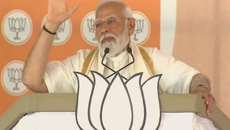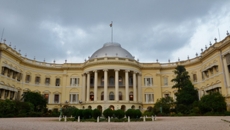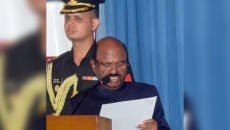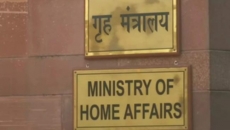The Central government enjoys the confidence and trust of more than 69 per cent residents of the country with the people of Gujarat and Uttar Pradesh topping the charts in reposing faith in the government services, a high-level study has found.
"Average trust in Government of India across the nation is at 69.36 per cent. Gujarat and Uttar Pradesh recorded the highest level of trust in government services, signaling public confidence," said the study, conducted by many top-notch IIM professors from its various centers including Ahmedabad, Calcutta, Lucknow, Indore and Rohtak.
The joint team of professors carried an in-depth analysis of the changes observed by citizens over past five years.
"The years 2019-2024 saw an average 72 per cent reduction in electricity cuts. Significant infrastructure improvements were observed in states like Uttar Pradesh, Rajasthan, Maharashtra, Gujarat, and Chhattisgarh, particularly in water and electricity supply. Gujarat and Maharashtra led in fostering youth optimism and reducing drug consumption," the study found out.
The study further points out that the average increase in agricultural income on self-report basis stood at 39.9 per cent across the nation.
"A little over three-fifths (66.02 per cent) of the respondents reported that youth was more hopeful & optimistic than before in India's development and growth. Farmers in Punjab, Haryana, and Kerala reported that there is a notable increase in agricultural income. Highest agricultural income increase was witnessed in Kerala, Haryana, and Punjab which is 49 per cent, 47 per cent and 45 per cent, respectively," it said.
The country also recorded a strong OTT-video penetration and the average figure stood at 69.24 per cent.
The study said that there was 34 per cent surge in spending on digital engagement and entertainment, indicating significant growth in OTT platform penetration and spending on movies and sports.
Overall, the mobile usage per day reported saw a 200 per cent increase over the past five years in urban regions, whereas, it is 155.5 per cent for rural areas. These developments reflect broader socio-economic transformations taking place across India.
On self-report basis, casual workers reported a 60 per cent to 175 per cent rise in income, reflecting improvements in the labour market.
This was validated by data from 75 trucking companies.
"Overall, an increased satisfaction (68.59 per cent) with public services was noted. The states like Uttar Pradesh, Gujarat, and Madhya Pradesh reported high level of trust in the government. The increase in savings across the nation owing to increased access to cooking gas, better healthcare, and sanitation was reported to be Rs 12,096 per year. States including Haryana and Uttar Pradesh saw significant increases in annual savings and reductions in sick days," it said.
It further found out that 69.1 per cent of the respondents reported that road travel has improved in the last five years. 62.2 per cent of the respondents reported that rail travel has improved in the last five years while 70.7 per cent of the respondents reported that air travel improved in the last five years.
According to the study, the five areas which recorded the most significant changes in the last five years included Sanitation: Access to toilets, Road travel Quality of Roads, Rail Travel: Quality of Rails, Power-cuts: Improvement in Electricity and Digital access: Mobile penetration and digital services.
For analysing the data, the researchers carried out a meticulous survey from wide pool of about 85,326 respondents, including farmers, casual workers, housewives, servicing employees, and students.
Data collected through a structured survey that was disseminated across 22 regions and states in India, specifically targeting Haryana, Punjab, Uttar Pradesh, Rajasthan, Gujarat, Madhya Pradesh, Maharashtra, Odisha, Jharkhand, Chhattisgarh, Assam, Karnataka, Andhra Pradesh, Telangana, Delhi-NCR, West Bengal, Tamil Nadu, Kerala, Himachal Pradesh, Uttarakhand, Bihar, and Jammu & Kashmir (UT).
The study was spearheaded by principal investigator Prof. Dheeraj Sharma from IIM Rohtak, alongside co-investigators Prof. Anand Kumar Jaiswal (IIM-Ahmedabad), Prof. Rajat Sharma (IIM-Ahmedabad), Prof. Saravana Jaikumar L. (IIM-Calcutta), Prof. Prem Dewani (IIM-Lucknow), Prof. Suresh Kumar Jakhar (IIM-Lucknow), and Prof. Siddharth K. Rastogi (IIM-Indore), representing a significant academic collaboration.






